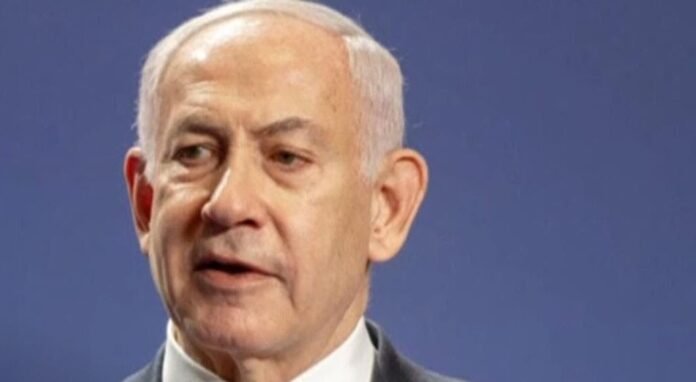UK forces in the Middle East were placed on maximum alert amid fears of Iranian drone attacks post-US strikes.
British military bases across the Middle East have been placed on the highest state of alert amid growing fears of retaliatory drone strikes from Iran, following US airstrikes on the Islamic Republic’s nuclear sites.
Defence Secretary James Cartlidge confirmed on Sunday that the UK’s Armed Forces have been ordered to implement enhanced protective measures, describing the level of security as “the highest possible” short of active conflict. The move comes amid deepening concern that American action against Iran could trigger a regional escalation, dragging allies like Britain into the fray.
“Our bases in the region are now operating under the strictest security protocols,” Cartlidge said. “We are taking no chances. Drone warfare is now Iran’s most immediate threat, and we are treating it with utmost seriousness.”
The alert covers Royal Air Force (RAF) and British Army installations across several undisclosed locations in the Gulf and surrounding territories. Commanders have reportedly initiated counter-drone systems, restricted movement around bases, and reinforced perimeter defences.
Military analysts believe Iran’s vast drone arsenal—ranging from suicide drones to surveillance UAVs—could be used to launch swarm attacks on Western assets in the region. Tehran has previously showcased drone strikes as a signature method of retaliation, including against Saudi oil facilities and American troop positions.
One defence source told The Telegraph that the UK “fully expects some form of drone harassment or provocation” in the coming days. “The Iranians will want to send a message. We just don’t know if that message will come with a bang.”
The heightened alert follows the United States’ Operation Midnight Hammer, which saw B-2 stealth bombers and submarine-launched Tomahawk missiles target Iran’s key nuclear sites at Fordow, Natanz, and Isfahan on Saturday night. The Pentagon claims the strikes “obliterated” parts of Iran’s nuclear infrastructure, though the full scale of the damage is still being assessed.
Iran has already launched ballistic missiles into Israel in retaliation, injuring at least a dozen people and prompting widespread international concern. Supreme Leader Ayatollah Ali Khamenei vowed “continued punishment” and promised further action against Israel, raising fears the next front could be US or UK forces based nearby.
In Westminster, government ministers are keeping a close eye on developments. Prime Minister Keir Starmer held a security briefing with senior military officials on Sunday morning and reaffirmed that while the UK was not directly involved in the US operation, it stands “ready to defend our forces and our interests in the region.”
Foreign Secretary David Lammy echoed the sentiment, urging “restraint on all sides” while condemning Iran’s enrichment of uranium and missile production. “The region cannot afford to spiral into all-out war,” he said.
The Ministry of Defence declined to confirm which bases are under high alert or whether any specific threats have been detected, citing operational security. However, defence experts point to locations such as RAF Al Udeid in Qatar, UK Army facilities in Bahrain, and maritime assets in the Arabian Sea as likely candidates for heightened risk.
“This is one of the most dangerous moments for British forces in the region in years,” said Jack Watling of the Royal United Services Institute (RUSI). “If Iran decides to escalate, it won’t only be Israel or the US in the firing line.”
As tensions rise and drone capabilities grow more lethal, Britain’s top military planners are bracing for impact. For now, the skies above British bases remain quiet—but few believe they will stay that way for long.
GB NEWS
UK Business Secretary Jonathan Reynolds reassured the public that British armed forces are “prepared for all eventualities” following US airstrikes on Iranian nuclear facilities, which raised fears of wider conflict. Speaking on GB News, Reynolds acknowledged public anxiety and confirmed evacuation plans for British nationals in Israel, the Palestinian Territories, and potentially Iran. The strikes, ordered by President Trump, targeted Iran’s key enrichment sites at Fordow, Natanz and Isfahan. Iran had earlier warned such actions could trigger “all-out war.” Reynolds stressed the threat posed by Iran’s nuclear ambitions, calling its uranium enrichment incompatible with civilian use. He also revealed Iran’s malign activity in the UK is monitored weekly. Netanyahu hailed the US strikes as historic and decisive, crediting Trump’s leadership for altering the Middle East’s trajectory. Meanwhile, the UK continues charter talks for air evacuations and supports land-based exits via Egypt and Jordan. Despite not being militarily involved, the UK is bracing for escalating regional instability amid fears of World War Three.
THE STANDARD
Business Secretary Jonathan Reynolds has warned that Iran’s threat to the UK is already significant and could escalate in response to US and Israeli actions. Speaking to Sky News, Reynolds revealed that “not a week goes by” without Iranian cyber attacks on UK critical infrastructure and that Iranian activity “on the streets” is “wholly unacceptable.” MI5 and the National Cyber Security Centre have confirmed a growing threat, with MI5 halting 20 Iran-linked plots since 2022. Intelligence chief Ken McCallum previously described the pace and scale of threats as “unprecedented” and “potentially lethal.” Reynolds urged Iran to abandon its role as a global destabiliser and consider a better path forward. Iran was the first foreign power added to the UK’s enhanced foreign influence registration scheme, which requires any UK-based activities directed by Tehran to be declared or risk up to five years in prison. Reynolds stressed the risk from Iran is “not hypothetical” and called for vigilance as tensions in the Middle East continue to rise.
